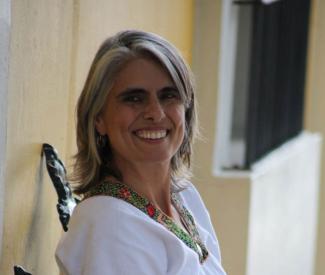
Area: Social Demography, Immigration, Health, Social Stratification, Race and Ethnicity
I study how inequalities emerge, persist, and sometimes diminish — and how public policies can play a role in shaping those outcomes. My work often focuses on migrants, the elderly, and people living in poverty, exploring how markers of social status such as skin color, race and ethnicity, documentation status, and socio-economic background affect life chances in areas like health, education, and work.
A distinctive feature of my research is my role as Co-Principal Investigator of the Mexican Family Life Survey (MxFLS), a large and nationally representative panel study that follows individuals and households over time. Because I am directly involved in designing and collecting this data, I can address questions that would be nearly impossible to answer using existing sources. This deep engagement with the data is one of the aspects of my work that I value most.
One line of my research examines how migration shapes the health and economic well-being of immigrants and their families, both in the countries they move to and the ones they leave behind. For example, I am studying how skin color relates to health outcomes among Mexican immigrants in the United States, using unique MxFLS data. In collaboration with colleagues in Mexico, I have also looked at how remittances acted as a safety net during the COVID-19 pandemic, helping households cope with both health crises and economic shocks.
Another strand of my work focuses on social stratification and the role of skin color in shaping opportunities. I study how skin tone interacts with race, ethnicity, gender, and physical characteristics in influencing educational attainment, socio-economic mobility, partner selection, and health. In one ongoing project, I investigate whether skin color can be “exchanged” for socio-economic status in the process of forming couples in Mexico. I have also co-authored work that challenges the national narrative of mestizaje — the idea that racial mixing erased racial divisions — by showing that skin color continues to play a powerful role in determining social and economic outcomes.
A third area of my research looks at how public policy can reduce inequality. My work on Mexico’s national health insurance program, Seguro Popular, shows that universal health coverage in settings of high inequality can lower mortality rates among older adults in rural areas.
Across all these projects, my goal is to produce research that not only advances our understanding of inequality but also offers insights that can help create policies to build more just and healthy societies.
Courses: SOC 10 Logics of Inquiry; SOC 108A Research Traditions, SOC 124 Contemporary Immigration, SOC 205B Data Analysis in Sociology; INT 187 Survey Research: Developing statistical tools to assess Indigenous access to justice in Oaxaca, Mexico